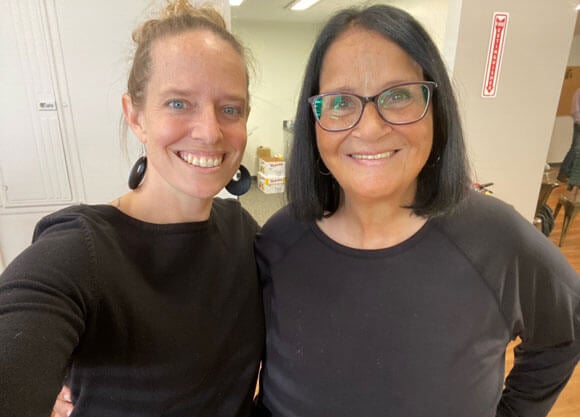
Promoting harm reduction techniques for a healthier population
April 03, 2022

April 03, 2022

A recent “Harm Reduction & Social Work: Policy, Community, Organizational and Individual Perspectives” panel explored the synergy between social work and public health in harm reduction. It was part of the Master of Social Work’s Celebration of Social Work, held on March 30.
Speakers included Founder and Executive Director of the Connecticut Harm Reduction Alliance Mark Jenkins, Founder of Sex Workers and Allies Network Beatrice Codianni, Clinician and internationally certified gambling counselor Casey Little, and others.
“[The panelists] are doing harm prevention on the front lines. One was looking at inpatient and outpatients suffering from drug addiction, another works on harm reduction and gambling,” said Kelly. “From a moralistic place, it’s easy to say ‘but you shouldn’t be doing these things.’ Harm reduction is taking away the should, and to say if this is the reality, how can we empower better individual decisions?”
From a policy perspective, this means advocating for more available resources that may reduce risk, including condoms, clean needles and safe crack pipes, she said.
“How does social work think about it? For so long we [solely] focused on behaviors taking over and causing negative life outcomes,” said Kelly. “Rather than saying simply don’t do those things, we [train others] how to keep yourself safer and if you want to make a better decision. It’s about starting where the client is at, not where they want to be.”
A commitment to harm reduction continues to be a focus of the Department of Social Work. For many who recover from addiction, it was after narrowly avoiding communicable diseases (like HIV) and accidental overdoses, said Kelly.
“In social work, we look at the wider social forces that are affecting people and how they make decisions about how they’re coping. We want to support people where they exactly are at, so we can trend healthier as a society,” she said.
And encouraging people to make better decisions may be the support individuals need to improve their lives and help others do the same. “People who have sobriety are taking positions as care clinicians and community leaders who are helping to get better practices and policies get into place,” said Kelly.
For social work students, the integration of harm reduction studies demonstrates different measures that can result in successful intervention.
“Understanding [and implicating] harm reduction practices will make our students better providers in the long run,” said Kelly. “We also give them the opportunity to network with leaders in harm reduction so students will know who they can call to understand how to integrate practices, philosophies and programmatic changes.”
Quinnipiac Today is your source for what's happening throughout #BobcatNation. Sign up for our weekly email newsletter to be among the first to know about news, events and members of our Bobcat family who are making a positive difference in our world.
Sign Up Now